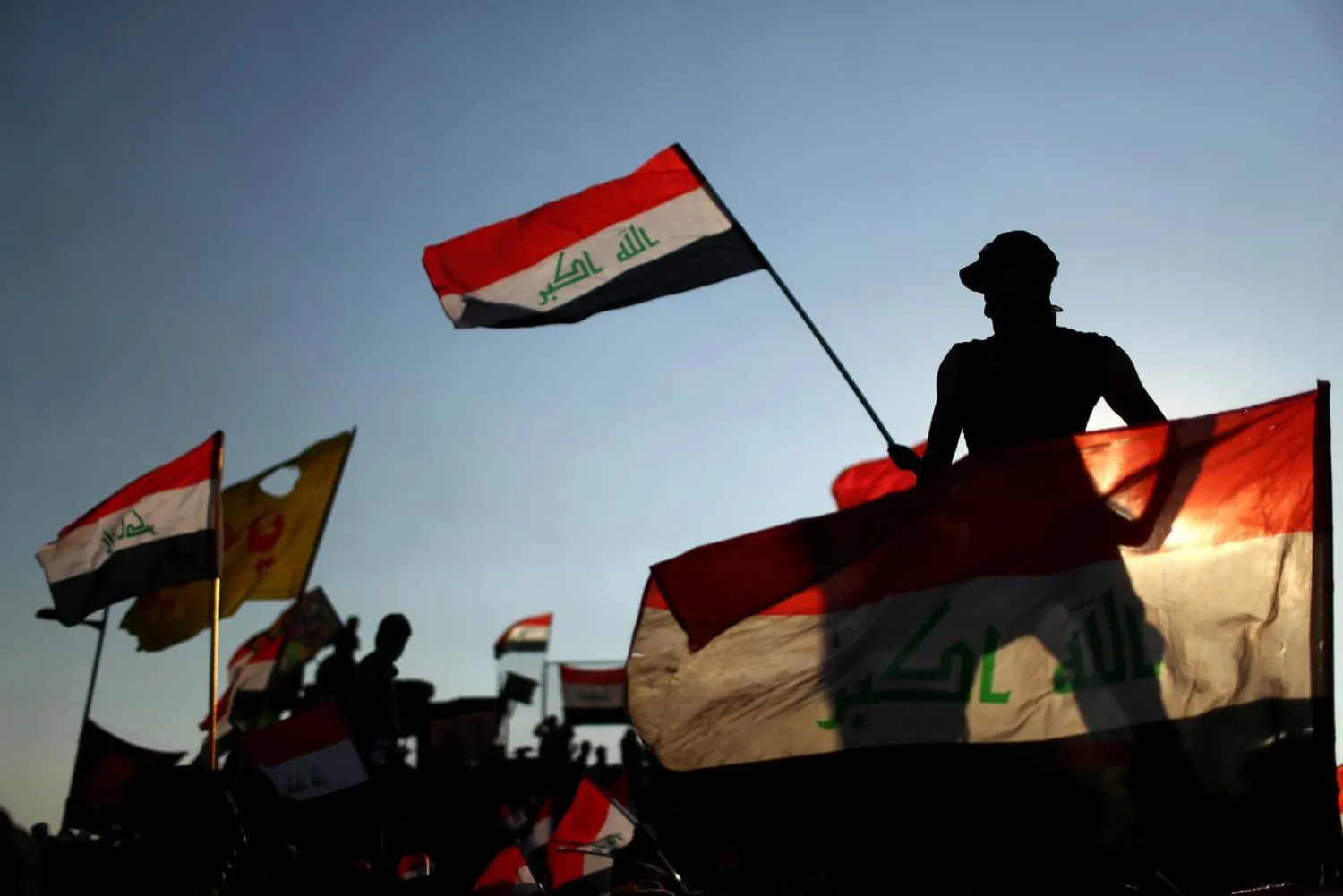Two weeks ago, it was rumored that the United States and Iran had struck some form of “truce” on Iraq after they had implicitly agreed to Mustafa al-Kadhimi’s nomination as prime minister.
This led to the belief that the Americans and Iranians wanted to avoid placing obstacles for his government to allow it to tackle the country’s crises, such as the rampant corruption and regional and international conflicts that have been playing out on its territories for over 15 years.
Some recent developments have, however, dashed such beliefs. Iran’s militia proxies in Iraq have in recent days resorted to their “old games” by challenging the government’s authority.
On May 19, armed factions launched Katyusha rockets at the Baghdad’s Green Zone, which is home to several foreign missions. The rockets were launched from an area that is known as a stronghold for pro-Iran factions.
The attack was followed by the factions’ storming of the Saudi-owned MBC television headquarters in a clear move aimed at embarrassing Kadhimi’s government. Moreover, one cannot ignore the hostile campaign Iranian factions waged on social media against Saudi Arabia in wake of a visit paid by Kadhimi’s envoy, Finance Minister Ali Abdulamir Allawi to Riyadh, which was aimed at bolstering bilateral relations.
The campaign is clearly aimed at pressuring the prime minister and impeding his efforts to establish a new stage of cooperation between Iraq and Saudi Arabia.
Furthermore, the pro-Iran factions’ excessive celebrations marking Quds Day on Friday were also aimed at undermining Kadhimi. The organizers raised posters of the Iran’s Khomeini, supreme leader Ali Khamenei, and the leaders of the Houthi militias in Yemen, Hezbollah in Lebanon and Hamas in Gaza – all backed by Tehran – at the event.
Such actions aim to embarrass Kadhimi’s government and demonstrate that it was helpless against stopping foreign meddling in Iraqi affairs.
In yet another sign of defiance of the government, the pro-Iran Thar Allah Islamic Party returned on Saturday back to its headquarters in the southern city of Basra, a week after the security forces had shut it after the group had opened fire against protesters in the vicinity.
Dr. Ihssan Shmary, head of the “Political Thinking Center”, told Asharq Al-Awsat that the factions were clearly seeking to pressure the government.
“The indirect agreement between Washington and Tehran on Kadhimi’s government does not mean that Iran has abandoned its political maneuvers and pressure, especially since it has enough room to exert its pressure through its armed groups in Iraq,” he added.
Iran is being clear in saying to Washington and Baghdad that the calm does not mean that Tehran will in any way set aside its aggression, he remarked.
Kadhimi, he continued, is confronted with the challenge of facing political ideologies that want to impose their vision on the state.
Political science professor at University of Kufa, Dr. Eyad al-Anbar, said the PM and armed groups are trying to maintain their power in the streets.
“They are now both sending each other messages,” he told Asharq Al-Awsat. He predicted that the armed factions will seek to further challenge the government, which in turn realizes that the confrontation is inevitable in order to restore the authority of the state.
“I believe that Iran will try to seek calm at the moment until the results of next month’s American-Iraqi talks emerge,” he said. Tehran thinks that Kadhimi can be used to calm tensions with the US, however, he will be confronted with the choice of either confronting the factions or containing them.
Either option cannot be taken without first consulting with Iran, he explained.









